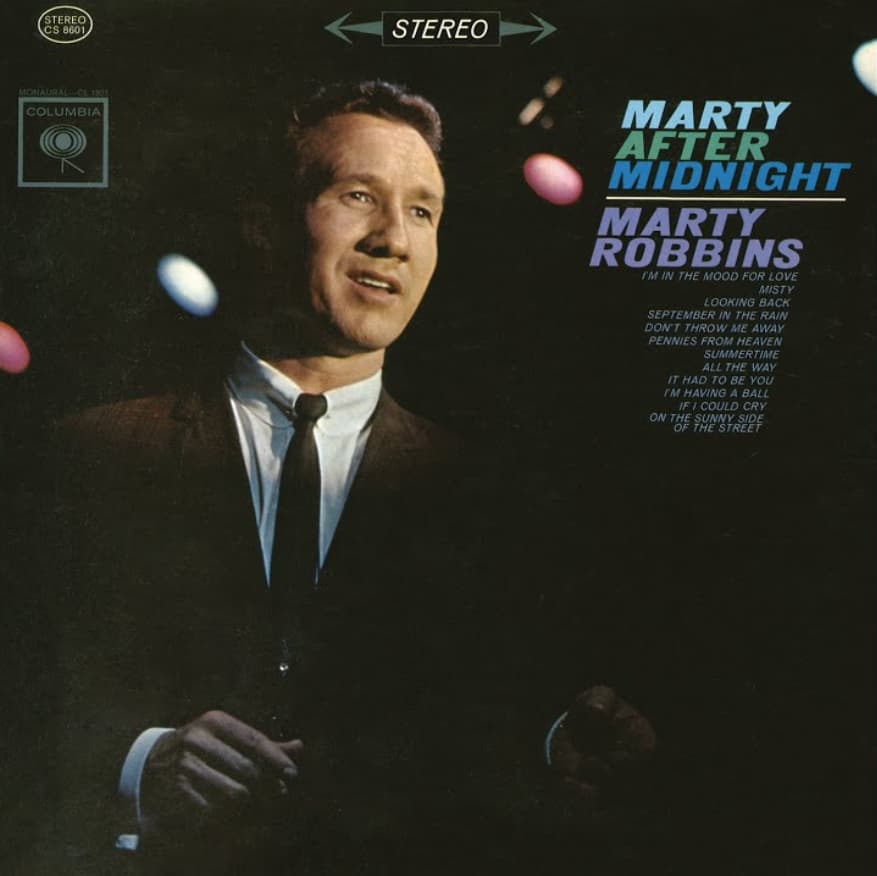
An Artist’s Reflection: A Timeless Look at the Past
The song Looking Back is a heartfelt plea for a lost love, filled with the bittersweet pain of nostalgia.
There are certain songs that, the moment they begin, instantly transport you to another time and place. They’re not just melodies and lyrics; they’re capsules of memory, filled with the scents and sounds of a bygone era. For so many of us who grew up with him, Marty Robbins was that kind of artist. He was more than a singer; he was a storyteller, a romantic, a cowboy troubadour who could paint a vivid scene with just a few well-chosen words and a smooth, golden voice.
His work, particularly a track like “Looking Back,” serves as a perfect example of his enduring magic. Released on the 1962 album Marty After Midnight, this wasn’t one of his big chart-toppers like “El Paso” or “A White Sport Coat (And a Pink Carnation)”. In fact, it didn’t even chart. But to focus on its commercial performance would be to miss the entire point. This song, penned by the talented trio of Brook Benton, Belford Hendricks, and Clyde Otis, is a quiet masterpiece of introspection. It’s a song for those late nights when you’re alone with your thoughts, and the ghost of a past love wanders back into your mind’s eye.
The story behind this song isn’t some grand, dramatic tale of a gunfighter or a rogue cowboy, but rather the universal experience of regret and longing. It’s about a man who, having lost the love of his life, finds himself caught in a loop of memory. He’s not angry or resentful; he’s simply, profoundly sad. The song’s meaning is in its simplicity and sincerity. It’s an honest, unvarnished look at the ache that comes with knowing you had something precious and let it slip away. The narrator is “looking back,” not with the intent of turning the clock back, but with a wistful, almost mournful, gaze. He’s begging his former love to “look back” too, to see if they feel the same pang of nostalgia and regret. It’s a silent plea, a whisper on the wind.
The genius of Marty Robbins’ delivery is in his restraint. He doesn’t oversell the emotion. His voice, so often powerful and commanding in his western ballads, is here, soft and vulnerable. It’s this quiet performance that makes the song so relatable. Every older man who has ever sat on a porch, staring at the sunset and thinking of a woman from his past, understands this song on a cellular level. It’s the sigh you didn’t know you were holding, the tear you didn’t know you needed to shed.
Marty Robbins himself was a man of many facets, a true renaissance man of his time. He was not just a singer and songwriter but also a prolific NASCAR driver, an intriguing fact that somehow makes the quiet, reflective nature of a song like “Looking Back” even more poignant. Here was a man who lived life in the fast lane, yet could slow down and capture the deep, enduring emotions of the human heart with such precision. This duality, the gunfighter and the gentle crooner, the race car driver and the poet, is what made him so unique and so beloved. He could be larger than life in songs like “Big Iron” and then shrink into the quiet solitude of regret in a song like this one. He was, and remains, an icon who could resonate with the tough, weathered soul of a cowboy and the fragile, broken heart of a man in love. His music is a testament to the fact that strength isn’t just in action, but also in the courage to look back and feel. It’s a legacy that will never fade, much like the memories this song evokes.